Boston Housing Court
We have information about appearing in court and transferring your eviction case to Boston Housing Court.
Appearing in court
The Boston Housing Court is located at 24 New Chardon Street (the Edward W. Brooke Courthouse). Give yourself plenty of time to go through security, check in, and find a seat in the courtroom.
The Housing Court courtrooms are on the fifth floor. The Housing Court Clerk’s office is on the third floor.
When court begins, the judge will typically take the bench and explain the process. When they finish, the clerk in the courtroom will call the names of the parties scheduled to appear. As the clerk calls out the names, they will ask whether the parties would like to take part in mediation.
When you hear your name, you should respond loudly and clearly that you are present. You should also say whether you wish to take part in mediation.
MediationIf all parties agree to mediation, the clerk will ask you to go down to the third floor to wait for a mediator. If you don’t agree to mediate, a judge will hear your case. Stay in the courtroom, unless you’re told otherwise.
You can get help at Boston Housing Court through the Lawyer for the Day table. The table is staffed by attorneys from legal service organizations and volunteers, including:
- the Volunteer Lawyers Project
- Harvard Legal Aid Bureau
- the Legal Services Center, and
- Greater Boston Legal Services.
You can find these attorneys outside of the courtrooms on the fifth floor.
Transferring to Boston Housing Court
Did your landlord file a summary process case in one of the District Court divisions of the Boston Municipal Court? These include, for example:
If your landlord filed in a District Court, you have the right to transfer the case to the Boston Housing Court. You can find the Court Division in the upper left hand corner of the Summons and Complaint.
Why you should transfer
Boston Housing Court judges only hear housing cases. This is unlike District Court judges, who mostly hear criminal cases. In Boston Housing Court, the Clerk’s office staff knows the housing court process. Also, the Boston Housing Court offers mediation through trained specialists and legal help through the Lawyer for the Day Program.
You must complete a Notice to Transfer form and file it in three places:
- the District Court
- the Housing Court, and
- with your landlord (or your landlord’s attorney).
You must file the Notice to Transfer form by the day before the original court date. For example, if the trial date is on a Thursday, you must file and serve the Notice to Transfer on Wednesday. There is no cost to transfer a case to the Housing Court.
Remember to follow up with the Boston Housing Court Clerk’s Office. Make sure they have your case, and have given you a new trial date.
Legal help
Having trouble with your eviction case? You can get help with one of these resources.
Free civil legal aid to low-income people in Boston.
Legal services program for those with low incomes in the Boston area.
Get practical information about your legal rights in Massachusetts.
Get lawyer referral services and information at Housing Court.
They offer eviction help for tenants and owner-occupied landlords.



